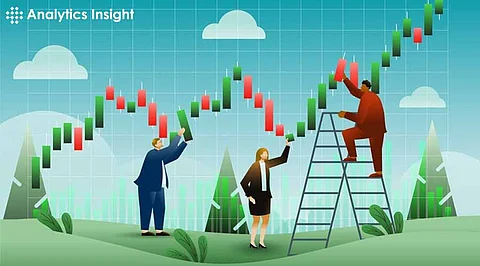

Political uncertainty is a phenomenon that has long been apparent in financial markets, and they are extremely sensitive to it. All investors, businesses and policymakers pay attention to that interplay between politics and the economy, knowing full well that political disruptions tend to ripple out into markets.
Sensitivity may mean that stock prices, currency exchange rates and bond yields will be fluctuating. To be well able to deal with such periods, it is important to understand why financial markets react in response to political uncertainty.
Political uncertainty is a situation where the political setting cannot predict when and how it will change. That can be elections, leadership change, policy shifts, geopolitical tensions or sudden regulatory change, among other things.
These events add to the ambiguity as to what the future holds, not just in the economic arena about what policies might do to the stability and growth of the economic sphere.
The 2016 US presidential election is a prime example of what global markets were blown out of the water by. The US stock market saw heightened volatility as polls ebbed and flowed, and as uncertainty swirled, the S&P 500 Index fell by 1.9 per cent in a single day before steadying postelection.
Organised investors and corporate management make economic decisions in light of the future expectations of the economy. These expectations though can be influenced by political factors most especially those relating to fiscal or monetary policies.
For instance, controversies on possible or proposed changes in taxation, trade liberalisation, expenditure, budget or other fiscal measures affect manufacturing, techie or energy industries.
According to research studies done by the Federal Reserve Bank of St. Louis, political risks deter investment since some companies hold off on capital investment due to policymaker ambiguity. Tzhey refrain from making long-term financial commitments that could boost the economy and therefore result in slow economic growth.
The ambiguity indicative of the UK’s Brexit negotiations is nevertheless exemplary. Companies postponed their decisions on investments and the value of the British pound fell by more than 12 per cent to the US dollar after the Brexit vote.
Market movement is dictated by investor psychology. Investor confidence is high during politically stable periods while market participation and risk-taking also increase. However, during times of political uncertainty, it is witnessed the other way when investors search for safer assets, especially gold, government bonds, or other low-risk instruments to hedge against possible losses.
On the Chicago Board Options Exchange Volatility Index, which traders refer to as the "fear gauge," 40% more money was put on bets that the stock market would fall during the same period in 2020 when the panic over COVID-19 and political turmoil were at their peak. An increase in the selling of risky assets, such as equities, and inflation of demand for safe-haven assets will have direct effects on market performance.
Market upheavals can be caused by geopolitical conflicts or international disputes. Trading in these situations can compromise global supply chains, affect trade agreements or generate sanctions that can also directly result in market implications in financial markets.
If markets cannot figure out how these tensions will resolve themselves, then prices for commodities essential to economic activity like oil, natural gas, and much more can become highly volatile.
In 2022, the Russia-Ukraine conflict shows this dynamic. With the invasion, global oil prices rose 30 per cent, while European stock markets dived as much as 4 per cent on a single day as investors were rattled by fears of an extended war over supplies of the commodity. Investor fearsets adjust rapidly to such events, which contributes to investor fear.
Several historical examples demonstrate how political events can send shockwaves through financial markets:
1. Brexit (2016): Within days of the UK referendum on whether to leave the European Union, the British pound fell to sharp depreciation, wiping out nearly $2 trillion from global equity markets. That contributed further to volatility in the markets, as investors tried to judge the economic impact of a 'no deal' outcome.
2. US-China Trade War (2018-2019): Global stock markets were whipped by escalating tariffs and trade restrictions between the world’s two biggest economies. As the trade deal remains uncertain, they will impact the technology and manufacturing sectors and global equities will run into periodic sell-offs.
3. 2011 US Debt Ceiling Crisis: Political tensions in Washington led to fears that the US government would default on its debt. This uncertainty caused the S&P 500 to drop by 17% between July and August 2011, and credit rating agency Standard & Poor's downgraded the US rating for the first time in history.
Diversification, coupled with a front-row seat in geopolitical developments, is a political risk avoided and can be mitigated solely by the use of hedging instruments such as options or futures contracts. Many financial market investors rely on political risk assessment methodologies to gauge the impact of policy change on their portfolios. Additionally, there are some common features of these markets, one of the most common which is the increased reliance and sensitivity of emerging markets, to political risks which is something which should be an investor consideration.
Political uncertainty remains a key driver of financial market volatility. Getting a different leader, changing the policy or geopolitical tensions make investors and businesses respond with caution. However, markets can quickly recover from uncertainty, but the time until such uncertainty is resolved can result in substantial losses to those who haven’t prepared for such an event. And yet, by remaining in the loop and implementing risk management strategies, market players are protecting themselves.
